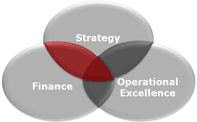 COVASNA AND BRASOV COUNTIES Transylvanian Kalnocky guesthouses will open two antique properties owned by HRH Prince of Wales to paying guests from the end of Spring 2011.
COVASNA AND BRASOV COUNTIES Transylvanian Kalnocky guesthouses will open two antique properties owned by HRH Prince of Wales to paying guests from the end of Spring 2011.The two new locations are located in Viscri (Brasov county) and Zalanpatak (Covasna county) near the current 11-room Kalnocky guesthouse of Miklosvar (Miciosoara).
Zalanpatak is a remote village reputedly founded by the British Prince’s ancestors in the 16th Century. The guesthouse in Viscri will have three rooms and Zalanpatak five rooms. Kalnocky Guesthouses are run by the Count Tibor Kalnocky, who has renovated his property, following its restitution from the state.
Zalanpatak is a remote village reputedly founded by the British Prince’s ancestors in the 16th Century. The guesthouse in Viscri will have three rooms and Zalanpatak five rooms. Kalnocky Guesthouses are run by the Count Tibor Kalnocky, who has renovated his property, following its restitution from the state.
Now he is assisting in a programme to preserve the traditional regional agriculture, animal rearing and hospitality.BCE, Citigroup, Comisia Europeana, FMI, Federal Reserve, Germania, Grecia, Irlanda, Marea Britanie, PIB, Rusia, SUA, Spania, Standard and Poor's, Ungaria, Uniunea Europeana, economie, obligatiuni, zona euro











